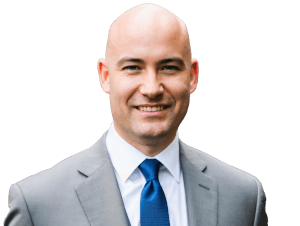Signs of falls include bruising, cuts, and abrasions. A serious fall may result in a fracture or other injury. Nursing home residents who have suffered falls may become reluctant to get up and move around due to a fear of falling. Elderly people with dementia or physical limitations that make it difficult for them to walk without help are more susceptible to falls, as are people who take drugs such as sleep medications or sedatives.
If your loved one needs assistance walking, moving, or getting out of bed, observe his or her caregivers to see if they are aware and attentive of your loved one’s needs. If nursing home staff fail to help your loved one move, or are careless or unsafe when helping your loved one move out of and into bed, there may be a good chance that your loved one has fallen due to caregivers’ neglect.
Falls are a common problem in nursing homes, and often lead to emergency room visits. In general, elderly people are physically weaker and more vulnerable when it comes to injury, which makes the consequences of falling more serious for them than for others. If you suspect neglect, contact a Georgia nursing home falls lawyer to discuss your case.
Steps to Take after a Nursing Home Fall
If you suspect your loved one has been a victim of a fall, or of multiple falls, ask them about it first, if possible. Alternately, if your loved one does not remember falling, or is unresponsive, check for signs like bruises and other injuries. Observe your loved one’s caregivers to see if they are careful and attentive in helping your loved one move around. Find out whether they monitor your loved one when he or she is walking, or if they leave your loved one to fend for him or herself.
If your loved one has been a victim of a fall, you should call a lawyer to find out if you have a case. While some falls are unavoidable, many times, a fall is a sign of nursing home neglect. If this is the case, the nursing home will be required to compensate your loved one with money in damages: paying for things like medical bills, emergency room visits, and pain and suffering caused by your loved one’s fall.
You may also wish to report nursing home neglect to an ombudsman or to Georgia Healthcare Facility Regulation.
Common Causes of Falls in Assisted Living Facilities
In general, nursing home residents fall more often than other elderly people not living in nursing homes. Falls may occur in nursing homes for a number of reasons. For one thing, nursing home residents are often weaker and more susceptible to falls, due to physical or mental disabilities, weak muscles, and impaired eyesight. In fact, these conditions are probably what caused them to enter the nursing home, since they are no longer capable of living alone without help. Sadly, all these conditions make a person more likely to fall, and due to nursing home negligence, caregivers sometimes fail to give residents the help they need.
Caregivers may neglect residents when a nursing home is understaffed, making it impossible for caregivers to give each resident the specific help they need. If there are too few staff, a nursing home will be unable to assist each resident with walking, and it will be difficult to monitor each resident to prevent falls from occurring.
Unsafe conditions like slippery floors and obstructions in hallways also contribute to nursing home falls, as does equipment that is used improperly or placed at a height where the resident cannot safely reach it.
Georgia Nursing Home Falls Lawyer Near Me (678) 823-7678
Nursing Home Actions to Prevent Falls
In order to prevent falls, nursing homes should make sure all residents who need help getting out of bed and moving around receive the attention they need to do so safely. This is especially true for residents with dementia or disabilities that make moving without help dangerous.
Nursing homes should ensure residents receive equipment like walkers, wheelchairs, and the right kind of shoes to walk or move safely. Resident’s chairs and beds should be at a safe height, and if bed rails are used, they should be used carefully and in accordance with Georgia nursing home law. Nursing home bathrooms should have seats, handles, and no-slip floors, reducing the risk of a resident falling.
Nursing homes should also minimize hazardous conditions like slippery floors, uneven ground, poor lighting, and objects in hallways or walkways, which might cause a resident to fall.
Nursing homes should avoid giving residents certain drugs or medications which contribute to falls, like sedatives and sleeping medication.
Residents who have fallen previously should receive extra attention, and caregivers should be educated on preventing falls.

Call a Georgia Nursing Home Falls Attorney
Nursing homes that fail to protect residents from falls may be guilty of negligence. Under state law, nursing homes in Georgia have a duty towards their residents, which includes protecting them from environmental hazards and providing them with adequate care based on their individual needs. Neglecting to fulfill this duty by failing to protect residents from falls constitutes an illegal act on the part of the nursing home, and the nursing home itself may be held legally responsible.
This means the nursing home bears responsibility for covering the cost of any expenses related to the resident’s fall. For an elderly person, a fall may mean a visit to the emergency room, which can result in costly medical bills. Or it may require physical therapy, which can also be expensive. Falling also causes the resident pain and suffering, and in extreme cases, may lead to death. A nursing home that is guilty of neglect is responsible for compensating the resident for these expenses, as well as for pain and suffering. In the case of a fall that has led to death, the nursing home may be required to compensate the victim’s family in lieu of the deceased. Contact a Georgia nursing home falls lawyer to discuss a claim against the negligent parties.






